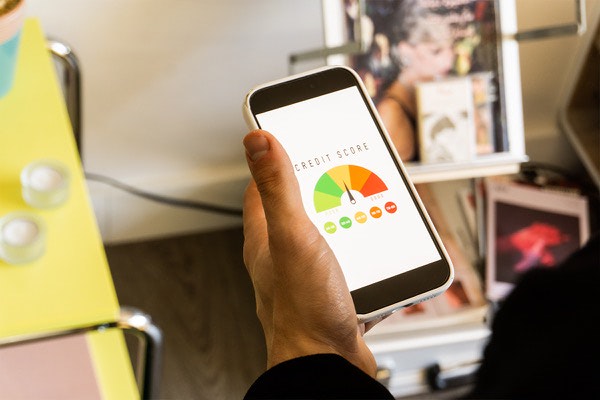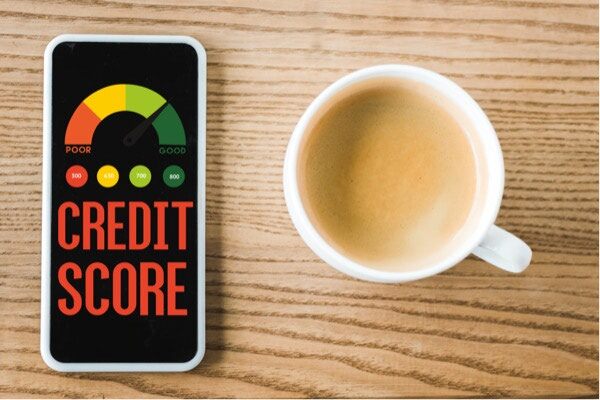How does one improve their credit score? Here are four key tips to help you build your credit profile this year.

Can you buy a home with existing debt?
Are you hoping to buy a home, but you have debt to deal with? Many people don’t know if buying a home with existing debt is an option for them, or how to get started. However, in most cases, you can buy a home with debt! Purchasing a home allows you to start building home equity, which means you will own a valuable asset over time. It’s also quite common to see people buying homes with debt these days. Now, this doesn’t always mean you should dive right into homeownership if you’re unsure about your options. Here’s what you need to know about making this big purchase with existing debt!
It’s an increasingly common trend
First, it’s important to know that buying a home with existing debt isn’t uncommon. Inflation has made everything more expensive, and the unfortunate reality is in many cases, incomes aren’t keeping up with these increases. Student loans and car payments can take years to pay off, and many people are still working on these debts when they want to buy a home. Plus, housing prices are rising at unimaginable rates. For many people, it’s not realistic to buy a home without existing debt. This means it is possible (and common!) to buy a home with debt. However, that doesn’t necessarily mean you should. It’s essential to understand the factors that contribute to this decision and how they affect you.
Understand your debt service ratios
Your debt service ratios will be an important factor when lenders decide whether to approve you for a mortgage. They show lenders whether you can afford a mortgage, and how creditworthy you will be as a borrower. Having good debt service ratios are important when buying a home, especially if you have existing debt already.
Gross Debt Service (GDS)
Your GDS ratio is how much of your monthly income you would need to use to make your monthly housing payments/expenses. This includes things like mortgage payments, utilities, and property taxes. It doesn’t take into account expenses like food or other forms of debt — your GDS ratio is directly linked to owning the property itself. This ratio is calculated by adding up all these expected costs, and dividing them by your monthly income. The Canada Mortgage and Housing Corporation (CMHC) states this ratio shouldn’t be over 35 per cent, meaning it shouldn’t cost you more than 35 per cent of your monthly income to handle these expenses. The lower the score, the better, because it means you don’t need to sacrifice as much income for these payments. In this case, your income is generally more important than your debt. If you have high levels of debt, but you also have a big income to support it, this could keep your ratio within range.
Total Debt Service (TDS)
Your TDS ratio is a ratio that also considers your income and your debts. This time, though, it includes all your debts, including those not related to housing expenses. These could be things like student loans, credit cards, car payments, and lines of credit. Like with GDS ratios, these are all added together and divided by your monthly income. In general, this ratio shouldn’t exceed 42 per cent. With both GDS and TDS ratios, lenders may be flexible with the ratios they will work with, but it’s still best to keep them low for the best chance of securing a good rate.
If you’re concerned about your GDS or TDS ratios, you can read this post on how to deal with lowering your debt.
Pros and cons of buying a home with existing debt
If it seems like buying a home with existing debt is an option for you, you should now think about the pros and cons of this decision. Here are some things you should consider.
Pros
Rates are still low today
While many people are expecting the Bank of Canada to increase the overnight rate sometime this year, we still don’t know exactly when. Until this happens, interest rates will stay on the lower end to make borrowing easier for people in the wake of COVID-19. Buying a home with debt might be a bit easier with low interest rates, because it means you will owe less money in mortgage payments. This will lighten the burden of taking on another piece of debt, which can be a big relief if you’re already dealing with high debt levels.
Start building home equity
The sooner you own a home, the sooner you can start building equity. Home equity makes up the value of your home, and in today’s market, all properties are increasing in value. By putting money into your home and making mortgage payments, you’re building home equity. Your property is likely to become more and more valuable over time as you make these payments and the market continues to grow, so buying a home with debt still can allow you to regain lots of value down the road. Home equity is important because when you own something of this much value, you have a big asset that can earn you money.
Cons
You might become house poor
Of course, there are also downsides to buying a home with debt, and the biggest one is, you run the risk of being house poor. House poor means you need to spend more than 40 per cent of your income on housing expenses to own the home. If you buy a home you can’t afford, and you already have debt, becoming house poor is easy and it can overwhelm you if you can’t make your payments. This can lead to defaulting on your mortgage, so it’s very important to know what you can afford before buying a home.
Your mortgage approval might be smaller than expected
Lastly, some lenders will be wary about approving your mortgage if you already have lots of debt. As a result, they may only approve you for a smaller mortgage so they have more protection and reassurance you can make your payments. This might mean you need to buy a smaller home than you wanted if you need to work with a lower mortgage and budget. Another possibility is a lender might charge higher interest rates on your mortgage in exchange for their flexibility with your debt. This means your monthly payments will be on the higher end, which can be tricky if you’re already dealing with debt.
Not all debts are the same!
Our debt situations are personal and are often changing, meaning nobody has the exact same circumstances. It’s important to work with a professional who can tailor their services to your needs, and that is where a broker comes in! If you’ve decided you wish to buy a home with existing debt, a broker can guide you through all your options so you can get the best product for you.
If you have questions about buying a home, get in touch with us at Clinton Wilkins Mortgage Team! You can call us at (902) 482-2770 or contact us here.


